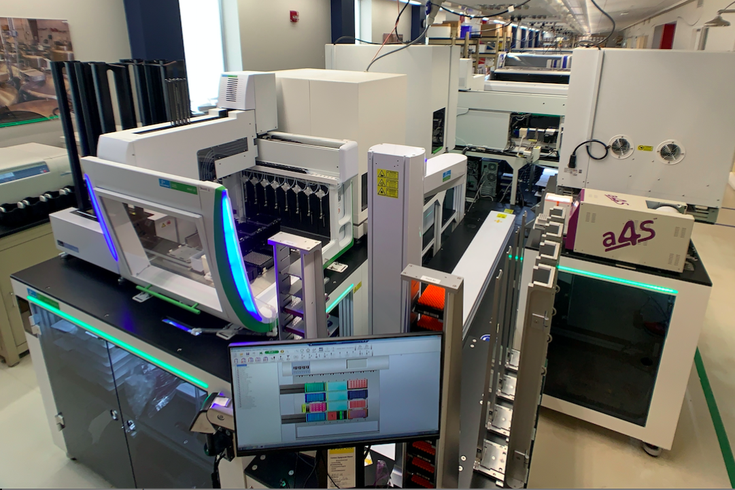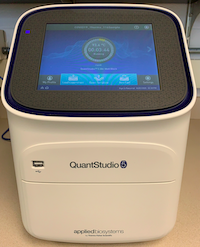
April 02, 2020
 Source/Rutgers University
Source/Rutgers University
Rutgers University researchers have developed a rapid COVID-19 test that analyzes a person's saliva sample for coronavirus RNA. The developers are seeking an FDA emergency use authorization to begin using the test widely.
A new, rapid saliva test for COVID-19 created by Rutgers University researchers could soon screen thousands of people a day for the coronavirus, reducing risks to health care workers and greatly scaling up the New Jersey's response to the coronavirus pandemic.
The university's RUCDR Infinite Biologics group developed a system that can extract virus RNA from a person's saliva, which allows patients to provide testing samples by spitting into a tube. The test uses an automated, Nobel Prize-winning laboratory technique that makes millions of copies of the SARS-CoV-2 virus' genetic information in the analysis of a single sample.
"We can accept hundreds to thousands of samples for analysis per day now and potentially will be able to test tens of thousands of samples daily in the next several weeks," said Andrew I. Brooks, chief operating officer and director of technology development at RUCDR Infinite Biologics.
The rapid testing method would eliminate the need for a health care worker to perform nasal swab tests. The results from the swab tests can take three days or longer to return.
RUCDR has submitted an emergency use authorization request to the FDA to use its saliva collection method for broader population screening.
"Saliva testing will help with the global shortage of swabs for sampling and increase testing of patients, and it will not require health care professionals to collect samples," Brooks said. "Saliva testing will also be important for people who are in quarantine because they don't know how long it will be until they are no longer infectious. This will allow health care workers to release themselves from quarantine and safely come back to work."
This devices detects the genetic material of the coronavirus in saliva, rapidly determining if a person has COVID-19.
The test is already available to New Jersey's RWJBarnabas Health Network, which include Rutgers Robert Wood Johnson University Hospital, University Hospital in Newark and several county health departments.
Deployment of the saliva test throughout New Jersey will be facilitated by RUCDR's partnership with Accurate Diagnostic Labs, which helped fast-track the validation and verification of the saliva testing methodology.
RUCDR's FDA request comes after Bergen County, a coronavirus hot spot, was selected by Illinois-based Abbott Labs to use its much-discussed ID NOW rapid testing system.
Abbott's lightweight molecular testing unit can detect COVID-19 within five minutes, but while its speed has become highly coveted across the United States, its testing methods are better suited for doctor's offices, urgent care centers and smaller hospitals. Enough units will need to be produced before it can be widely used at these facilities, giving a new and game-changing venue to COVID-19 testing.
The saliva test could play a similar role in these settings with a higher overall yield of screenings.
"The test can help hospital-based and private physicians to accurately assess the infection status of more patients, with RUCDR Infinite Biologics doing the analysis," said Jay A. Tischfield, founder, CEO and scientific director of RUCDR Infinite Biologics.
With FDA approval, RUCDR can deploy saliva tests more widely across the state, though it's unclear at this point how quickly methodology might become available to other parts of the United States and beyond.
New Jersey, one of the hardest-hit states in the country, had more than 22,200 confirmed cases of COVID-19 and 355 deaths as of Wednesday.
Brooks said the RUCDR system will be provided globally to health care networks.
"The sample can be collected anywhere and tested centrally," Brooks explained. "With that said, other testing labs can use the approach once approved to expand their capacity."
 Source/Rutgers University
Source/Rutgers University